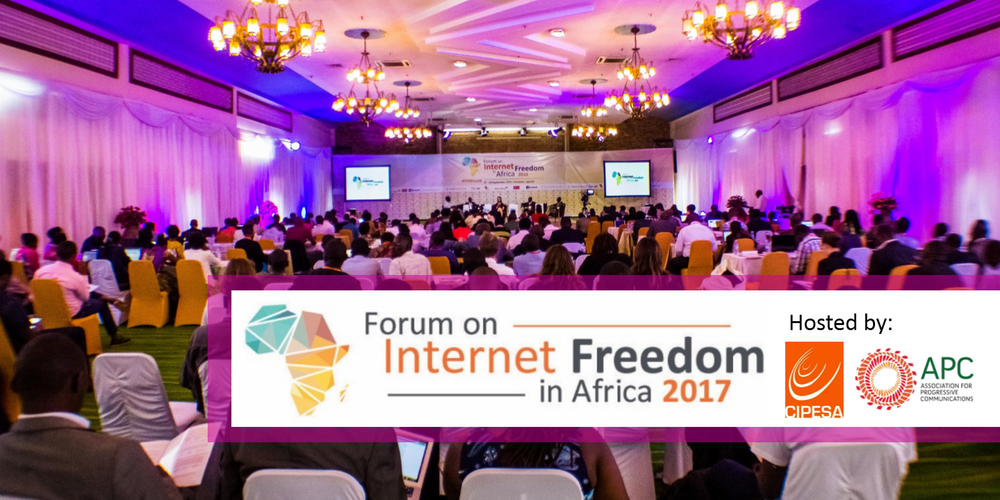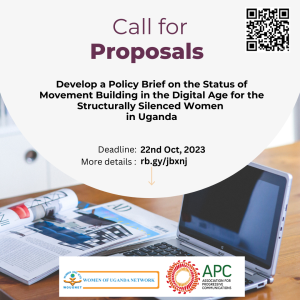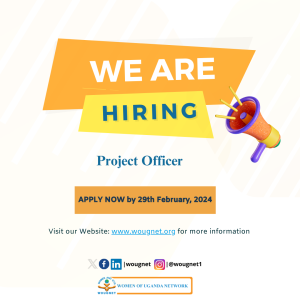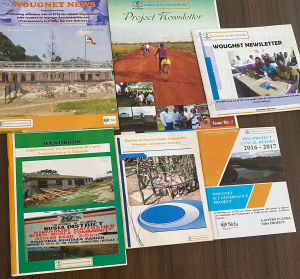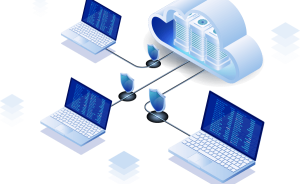The proliferation of Information and Communications Technologies in the global South and the
opportunities that these tools have presented in transforming the world particularly in Africa is one
that can be described as phenomenal. The euphoria that has been encapsulated within the term
‘Africa Rising’ according to researchers is attributed to Africa’s expanding middle class and the
development of information and communications technologies. This is crucial for the growth and
Development of Africa’s economy. However, as the internet continue to expand to even the remote
parts of the global South, albeit to its numerous advantages, the platform remains one that is marred
by impediments ranging from the state-centric regulations that often undermines fundamental rights
and freedoms of individuals to emerging issues of safety or violence, control as well as dominance
from the Northern tech giants that often, makes the internet space more of a platform for benefiting
the big players and serving certain capitalist agenda.
In Africa, the Forum on Internet Freedom is organised annually by the Collaboration on
International ICT Policy in Eastern and Southern Africa (CIPESA) as one of the crucial platforms
for deliberations and debates that shapes the future discourse of the kind of internet that everyone
wants. In particular, internet that is free, universal in its diversity, affordable, unrestrictive to ensure
the enjoyment of rights and individuals of online users among others. One of this forums took pace
on the 27th of September 2017 in Johannesburg, South Africa and saw diverse groups of tech-savy
individuals and entrepreneurs, online rights activist, representatives of tech companies and other
civil society organisations that support the future of an open, free and affordable internet for
everyone.
My participation in the Forum was within the ICT4democracy framework in East Africa where i
had the opportunity to participate in pre-event activities of particular interest. One of them was the
session on strategic rights litigation which was facilitated by Nani Jensen. Key issues emanating
from this discussions were the need to respect rights to privacy, freedom of expression, access to
information, freedom of assembly, rights to property, child protection as well as freedom of
conscience and religion in the same way offline rights are protected and upheld.
The session pointed out that violating some of the above rights and disconnection people from the
internet as is seen in the case of internet shutdowns in Uganda, Cameroon and Zimbabwe among
others goes against international norms and laws but also has ripple effects on the economy of the
nation states. Key learning outcomes for me was that if my digital rights are violated, then i can use
digital litigation as a mechanism to address social issues and change things in ways that are
respectful of rights of individuals online. Strategic human rights litigation uses the authority of the
law to advocate for social change on behalf of individuals whose voices are not heard. The litigation
has to be done in a tactical manner that addresses systematic violations in order to produce
outcomes that goes beyond the individual claimant but to enhance human rights protection for other
people affected by similar human rights violations.
Meanwhile, participating in the Forum enabled me to personally make contributions to the gender
dimension of technology as I participated in a panel session on advancing a gender sensitive
approach to ICT Policy and Decision making. This session was convened by WOUGNET and
moderated by WOUGNET’s team member, Moses Owiny. The session provided a case for how
gender sensitive ICT policy and processes have been implemented within the policy making spaces
in Uganda, South Africa and Nigeria. It investigated issues of access, affordability, participation
and influence, policy options as well as universal access. It also shared case studies and experiences
of successful policy making processes that have helped advance gender issues within the ICT Policy
making spaces. Key outcomes from this session were many but one of the most interesting ones
were on achieving universal access by 2030. While many panelists noted this remains a huge
challenge, there were some sharp but divergent views that held that indeed, achieving universal
access is possible in Africa within the 2030 agenda and framework
Goretti Amuritat ( Manager, Gender and ICT Policy Advocacy

